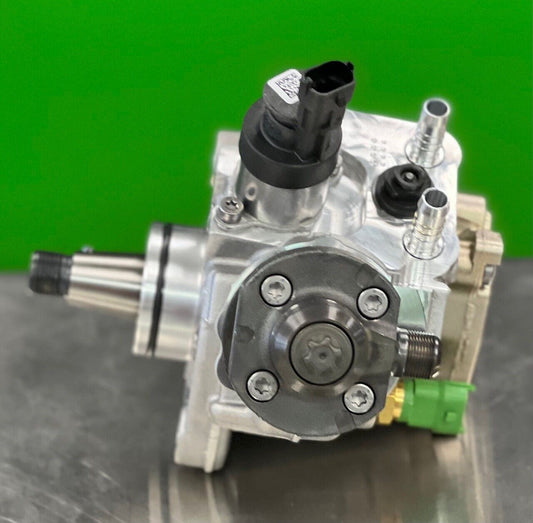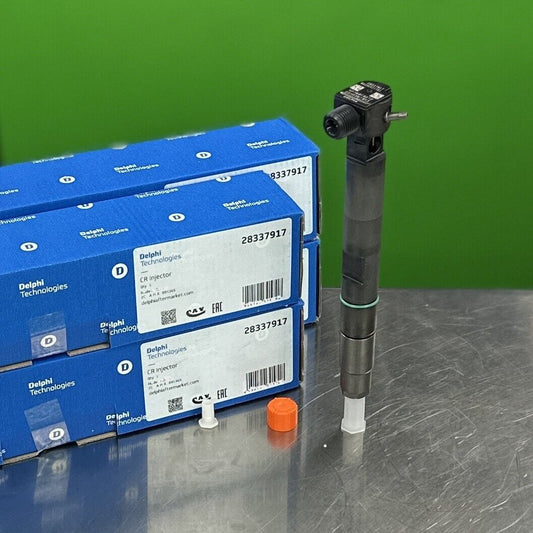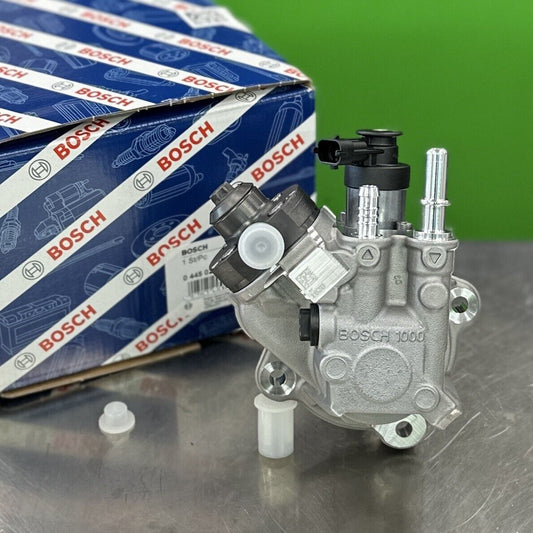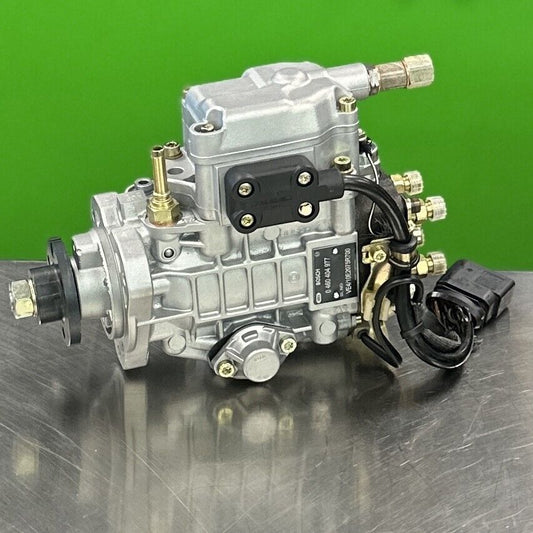Fuel Injector Troubleshooting: Common Issues and Solutions
When it comes to fuel injector troubleshooting, encountering common issues can be a real headache for vehicle owners. From clogging to electrical malfunctions, fuel injectors can cause a range of problems that impact engine performance and fuel efficiency. Understanding these issues is crucial for maintaining a healthy vehicle and ensuring optimal operation.
One of the most prevalent problems with fuel injectors is clogging. Over time, dirt, debris, and fuel residues can build up inside the injector nozzles, leading to restricted fuel flow and poor atomization. This can result in engine misfires, rough idling, and a noticeable decrease in power output. Additionally, leaking fuel injectors can cause fuel wastage and potential safety hazards due to the risk of fire.
Electrical malfunctions are another common issue that can affect fuel injectors. Faulty wiring, connectors, or internal components can disrupt the injector's operation, causing irregular fuel delivery and engine performance issues. Identifying these electrical faults early on is essential to prevent further damage to the injector system.
Recognizing the symptoms of a faulty fuel injector is key to addressing issues promptly. Signs such as decreased fuel economy, engine hesitation, and a strong odor of fuel indicate potential injector problems. If left unresolved, these issues can escalate and lead to more severe engine damage, impacting the overall reliability of the vehicle.
Diagnosing fuel injector problems requires the use of specialized tools and techniques. Fuel pressure tests can help determine if the injector is delivering fuel at the correct pressure, while visual inspections can reveal physical damage or signs of clogging. Electronic scanning tools play a crucial role in retrieving error codes and pinpointing specific injector issues for targeted repairs.
When it comes to cleaning fuel injectors, various procedures can be employed to restore optimal performance. From DIY cleaning kits to professional cleaning services, removing deposits and carbon buildup is essential for maintaining fuel efficiency and engine power. Regular maintenance can prolong the lifespan of fuel injectors and prevent costly repairs down the line.
In cases where fuel injectors are beyond repair, replacement becomes the only viable option. Understanding the cost implications and selecting the right injectors for your vehicle is crucial for a successful replacement process. Installing new injectors correctly is essential for restoring engine functionality and ensuring smooth operation on the road.
Common Fuel Injector Problems
When it comes to fuel injector problems, there are several common issues that can arise, causing disruptions in your vehicle's performance. One of the most frequent problems is clogging, where the injector nozzles get blocked by dirt or debris, hindering the proper flow of fuel into the engine cylinders. This can lead to engine misfires, rough idling, and a decrease in fuel efficiency.
Another common issue is leaking fuel injectors. This occurs when the injector seals become worn out or damaged, causing fuel to leak into the engine or onto the exterior of the injector. Not only does this waste fuel, but it can also pose a fire hazard if not addressed promptly.
Electrical malfunctions are also a prevalent problem with fuel injectors. Issues with the injector's electrical components, such as the wiring or connectors, can result in erratic fuel delivery to the engine. This can cause fluctuations in engine performance, leading to stalling, hesitation, or rough running.
Identifying these common fuel injector problems early on is crucial to prevent further damage to your vehicle's engine and ensure optimal performance. Regular maintenance and inspection can help detect these issues before they escalate, saving you time and money in the long run.
Symptoms of a Faulty Fuel Injector
When it comes to the health of your vehicle's fuel system, recognizing the symptoms of a faulty fuel injector is crucial. A malfunctioning fuel injector can lead to a range of issues that can affect your engine's performance and overall driving experience. Let's delve into the telltale signs that indicate a potential problem with your fuel injector.
One of the most common symptoms of a faulty fuel injector is engine misfires. If you notice your engine sputtering or running roughly, it could be due to a clogged or malfunctioning fuel injector disrupting the combustion process. This can result in poor engine performance and decreased fuel efficiency.
Another red flag to watch out for is rough idling. A faulty fuel injector can cause your engine to idle unevenly or inconsistently. If you feel vibrations or hear unusual noises while your vehicle is idling, it may be a sign that one or more fuel injectors are not functioning properly.
Decreased fuel economy is also a common indicator of a fuel injector problem. If you find yourself making more frequent trips to the gas station or notice a sudden drop in your vehicle's miles per gallon, it could be a result of inefficient fuel delivery caused by a faulty injector.
Furthermore, a noticeable decrease in acceleration power can point to a malfunctioning fuel injector. If your vehicle struggles to pick up speed or respond quickly when you press the accelerator, it may be due to a fuel injector issue affecting the engine's ability to generate power efficiently.
In summary, keeping an eye out for these symptoms can help you identify and address fuel injector problems early on, preventing further damage to your vehicle's engine and ensuring optimal performance on the road.
Diagnostic Methods
When it comes to diagnosing fuel injector issues, precision and accuracy are key. There are several diagnostic methods available to pinpoint the exact problem affecting your vehicle's fuel injectors. Let's delve into the various tools and techniques used by mechanics and technicians to identify and address fuel injector issues effectively.
One common diagnostic method is the fuel pressure test. By measuring the pressure of the fuel system, technicians can determine if the fuel injectors are delivering the correct amount of fuel to the engine. Any deviations from the expected pressure levels can indicate a potential problem with the injectors.
Visual inspections play a crucial role in diagnosing fuel injector issues. Technicians carefully examine the injectors for signs of clogging, leaks, or other visible damage. Additionally, they inspect the fuel lines and connections to ensure everything is in proper working order.
Electronic scanning tools are another valuable resource in diagnosing fuel injector problems. These tools can retrieve error codes from the vehicle's onboard computer system, providing insights into specific issues affecting the fuel injectors. By analyzing these codes, technicians can determine the root cause of the problem.
Furthermore, technicians may perform injector balance tests to assess the performance of each fuel injector individually. By comparing the output of each injector, they can identify any inconsistencies that may be causing engine misfires or other performance issues.
In some cases, ultrasonic cleaning may be used as a diagnostic method to remove stubborn deposits from the fuel injectors. This process can help technicians determine if the injectors are clogged or restricted, leading to poor engine performance.
Overall, a combination of diagnostic methods is often employed to ensure a comprehensive assessment of the fuel injectors. By utilizing the appropriate tools and techniques, technicians can accurately diagnose issues and recommend the most effective solutions to restore optimal engine performance.
Cleaning Procedures
When it comes to maintaining your fuel injectors, proper cleaning procedures are essential to ensure optimal performance and longevity of your vehicle's engine. Over time, fuel injectors can become clogged with deposits and impurities, leading to inefficient fuel delivery and decreased engine efficiency. Let's delve into the steps involved in cleaning fuel injectors effectively and restoring them to peak condition.
One effective method of cleaning fuel injectors is through the use of fuel injector cleaning kits. These kits typically contain specialized cleaning solutions that help break down and remove stubborn deposits from the injectors. By following the instructions provided with the kit, you can easily perform the cleaning process at home, saving time and money compared to professional services.
Additionally, fuel injector cleaning additives can be used as a preventative measure to keep injectors clean and functioning properly. These additives are designed to be mixed with your fuel tank during refueling, allowing them to clean the injectors as the engine runs. Regular use of these additives can help prevent the buildup of deposits and maintain optimal fuel delivery.
For a more thorough cleaning, professional fuel injector cleaning services are available at many auto repair shops. These services involve using specialized equipment to flush out the injectors and remove any accumulated deposits. While this option may be more costly than DIY methods, it can provide a deep clean that effectively restores injector performance.
In some cases, ultrasonic cleaning may be necessary for heavily clogged injectors. This advanced cleaning method uses high-frequency sound waves to agitate the cleaning solution and dislodge stubborn deposits from the injectors. While more intensive, ultrasonic cleaning can effectively restore severely clogged injectors to like-new condition.
Regular maintenance and cleaning of fuel injectors are crucial to ensure smooth engine operation and optimal fuel efficiency. By following the recommended cleaning procedures and using the appropriate cleaning methods, you can keep your fuel injectors in top shape and enjoy improved performance from your vehicle.
Replacement Options
When it comes to fuel injector issues, sometimes the best solution is to opt for replacement. But how do you know when it's time to replace a fuel injector? Let's delve into the world of replacement options and understand the process involved in selecting and installing new injectors to bring your engine back to its optimal performance.
First and foremost, determining the need for a fuel injector replacement depends on the severity of the problem. If cleaning or minor repairs cannot resolve the issue, replacement might be the only viable option. Consider factors such as the age of the injector, the extent of damage, and the cost-effectiveness of repair versus replacement.
When faced with the decision to replace a fuel injector, cost implications play a significant role. The price of a new injector can vary depending on the make and model of your vehicle. Additionally, consider the labor costs involved in the installation process, as it can impact the overall expense of the replacement.
Before proceeding with the replacement, it's crucial to select the right fuel injector for your vehicle. Consult with a professional mechanic or refer to your vehicle's manual to ensure compatibility. Choosing the correct injector size and type is essential to avoid further complications and maintain optimal engine function.
The replacement process itself involves several steps, starting with the removal of the old injector. Carefully disconnect the fuel lines and electrical connectors, then unfasten the injector from the fuel rail. Once the old injector is removed, proceed to install the new one, ensuring proper seating and secure connections.
After installing the new fuel injector, perform a test to check for any leaks or irregularities. Start the engine and monitor its performance to ensure that the replacement has been successful. If everything is in order, you can rest assured that your engine is now equipped with a brand-new injector ready to propel you forward with optimal power and efficiency.
Frequently Asked Questions
-
What are the common signs of a faulty fuel injector?
The common signs of a faulty fuel injector include engine misfires, rough idling, decreased fuel economy, and a noticeable decrease in acceleration power. If you notice any of these symptoms, it may indicate a problem with your fuel injector.
-
How can I diagnose a fuel injector issue?
There are various diagnostic methods available to identify fuel injector problems. These methods include fuel pressure tests, visual inspections, and electronic scanning tools for error code retrieval. By using these techniques, you can pinpoint the issue affecting your fuel injector.
-
When should I consider replacing my fuel injector?
You should consider replacing your fuel injector when cleaning procedures fail to improve its performance, or when the injector is severely clogged or damaged. Replacement may also be necessary if the injector is leaking or experiencing electrical malfunctions that cannot be repaired.
-
What are the benefits of cleaning fuel injectors?
Cleaning fuel injectors can help improve engine performance, fuel efficiency, and overall vehicle reliability. By removing deposits and buildup from the injectors, you can restore optimal fuel atomization and combustion, leading to smoother operation and better fuel economy.
-
How much does it cost to replace a fuel injector?
The cost of replacing a fuel injector can vary depending on the make and model of your vehicle, as well as the type of injector needed. On average, the cost of a single fuel injector replacement can range from $100 to $300, including parts and labor.



